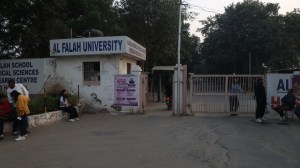Faking competitiveness
The Geneva based World Economic Forum WEF defines competitiveness as the capacity of a nation to achieve sustained economic growth in the...

The Geneva based World Economic Forum WEF defines competitiveness as the capacity of a nation to achieve sustained economic growth in the medium term. Competitiveness depends on a wide range of factors, the prominent among them being openness of the economy, government, finance, infrastructrure, technology, management, labour and civil institutions.
India8217;s corporate management has been rated by the WEF as one among the mediocres in the world, comparable to little known Columbia and Austria.
Take the case of post-liberalisation attempts to assimilate modern management concepts by Indian corporates. In many instances, the top managements treated Total Quality Management TQM as a magic potion to cure all their ills, as a short cut to success without committing the required efforts and investments in one Delhi based engineering company, the top management sought to implement TQM through a crash training on the subject to its middle and junior managerial ranks. Neither they were exposed to detailed training nor the company was willing to invest in the preparatory work before implementation. The resultant confusion led to the eventual abandonment of the scheme to the despair of all.
Some company managements believe old wines in new bottles can still serve their purpose when it comes to taking on the dynamic and world class competitors from the younger generation. A North India based auto component manufacturer was ready to accept change, but only to the extent of re-designating his managerial cadres; from personnel manager to HRD manager, for instance. He was unable to either comprehend the true spirit of the new nomenclature or implement the support measures to suit the new environment.
Another engineering company understood the utility of HRD and heavily invested on training its manpower. But the CMD failed to part with his older ways of finding fault with his managers and continued with his quot;firing stylequot;. The re-trained and fully charged managers with high expectations found it impossible to cope with the old style; they left the company one by one rendering the entire investment on HRD futile.
A Delhi based chemical company attempted to secure ISO 9000 certification with the help of an inexperienced and cheaper consultant, hired in a hurry. During the next six month period a tremendous amount of paper work was generated. Reaching nowhere nearer to the certification stage, the project was abandoned half way through.
While India8217;s image as a competitive economy would depend to a large extent on governmental initiatives in such areas as tariff and non-tariff protection, PSU reforms, IPR protection, foreign investment, subsidies, technology, fiscal deficit etc., new attitudes and approaches on the part of Indian corporate managements can significantly contribute to it. Efforts towards genuine TQM, mass adoption of information technology IT professionalisation of management, emphasis on HRD and the like would go a long way toward building a competitive image. The chorus to protect the interests of Indian industry through a moratorium on import duty reduction, initially voiced by the Bombay Club, recently renewed by FICCI and ASSOCHAM is hardly conducive to build such an image.
The author is director research in the National Productivity Council and the views are personal.
- 01
- 02
- 03
- 04
- 05































